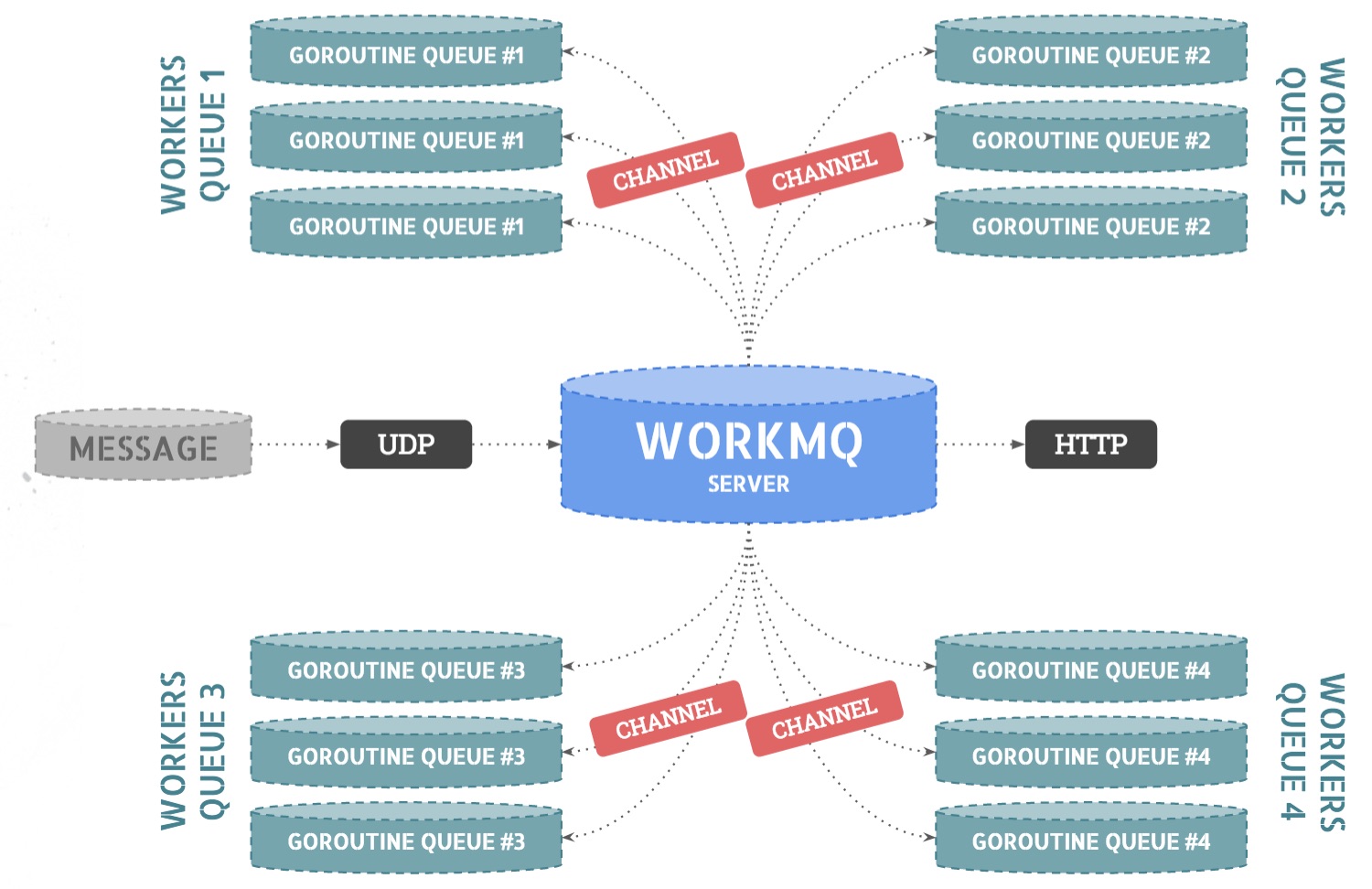A message queue system written in Go.
This is a message queue implementation written in Go. It allows to declare some queues, number of workers and processors that will process data sent in these queues.
Initially used for a Golang workshop study case, we've decided to put it open-source.
First, install it:
$ go get -u github.com/unikorp/workmqThen, import it in your application code:
import (
"github.com/unikorp/workmq"
)Queues and workers configuration is managed using a config.json file in the root directory.
Here is an example JSON with 2 queues, listening on UDP port and exposing the given HTTP port:
{
"ports": {
"udp": ":10001",
"http": ":8080"
},
"queues": {
"queue.1s": {
"processor": "processor.logger.1s",
"num_workers": 150
},
"queue.2s": {
"processor": "processor.logger.2s",
"num_workers": 200
}
}
}Here, we have 2 queues:
queue.1sthat will be processed by registered processorprocessor.logger.1sand will use 150 workers (goroutines),queue.2sthat will be processed by registered processorprocessor.logger.2sand will use 200 workers (goroutines).
Here is a code example that initializes WorkMQ, registers a processor and start handling messages:
package main
import (
"fmt"
"time"
"github.com/unikorp/workmq"
)
func main() {
app := workmq.Init()
app.AddProcessor("processor.logger.1s", func(worker *workmq.Worker, message workmq.Message) {
time.Sleep(time.Second * 1)
fmt.Printf("Worker #%d (queue: \"%s\") manages message %s\n", worker.ID, worker.Queue, message.Body)
})
app.Handle()
}You can send message data over UDP by sending a JSON string with the following structure:
{ "queue": "queue.1s", "body": "<your data>" }
